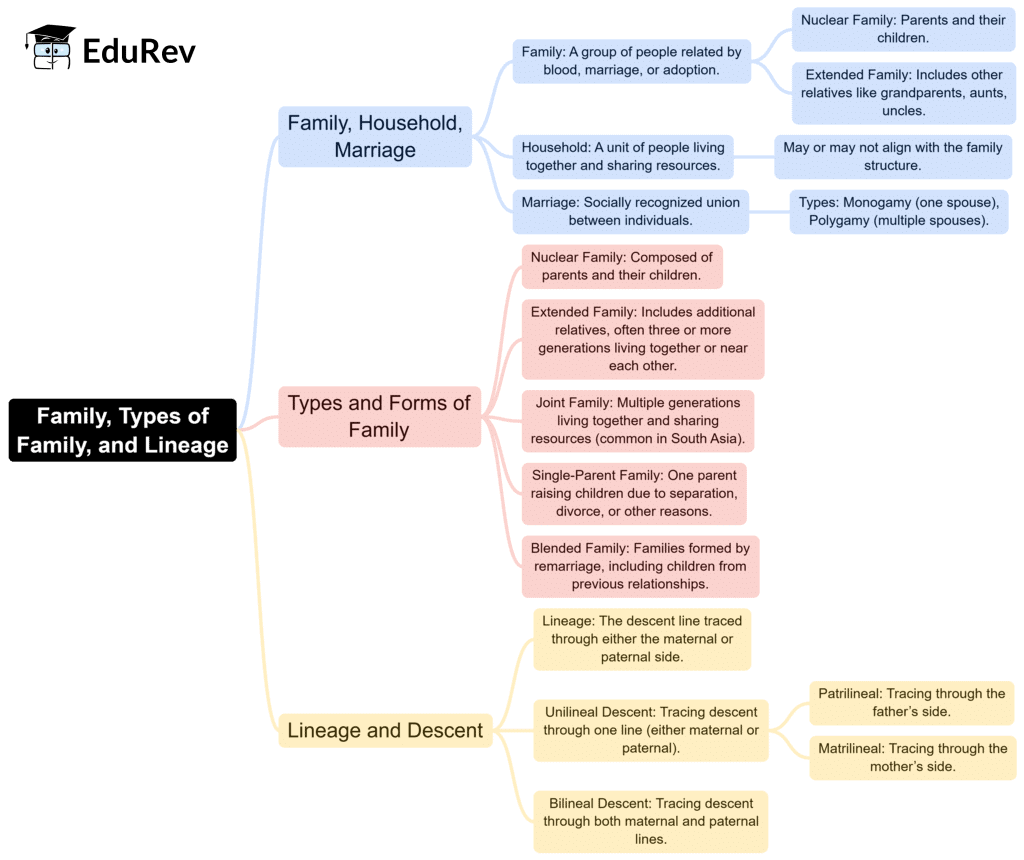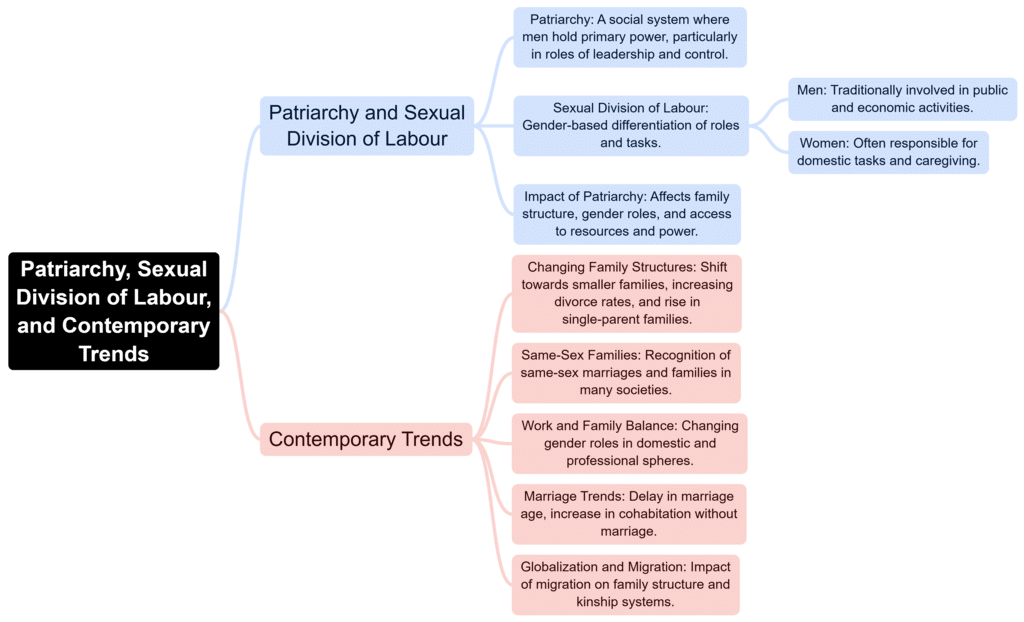UPSC Exam > UPSC Notes > Sociology Optional for UPSC (Notes) > Mind Map: Systems of Kinship
Mind Map: Systems of Kinship | Sociology Optional for UPSC (Notes) PDF Download


The document Mind Map: Systems of Kinship | Sociology Optional for UPSC (Notes) is a part of the UPSC Course Sociology Optional for UPSC (Notes).
All you need of UPSC at this link: UPSC
|
120 videos|427 docs
|
FAQs on Mind Map: Systems of Kinship - Sociology Optional for UPSC (Notes)
| 1. What are the different systems of kinship recognized in anthropology? |  |
Ans. In anthropology, the main systems of kinship recognized include patrilineal, matrilineal, and bilateral systems. Patrilineal systems trace descent and inheritance through the male line, while matrilineal systems do so through the female line. Bilateral systems recognize both maternal and paternal lines equally, allowing individuals to belong to both sides of their family.
| 2. How do kinship systems influence social structures in different cultures? |  |
Ans. Kinship systems significantly influence social structures by determining family roles, inheritance rights, and social obligations. For example, in patrilineal societies, men often hold more power and property rights, while in matrilineal societies, women may have greater authority in household decisions. These systems shape marriage practices, caregiving roles, and the organization of communities.
| 3. What is the importance of studying kinship in the context of UPSC exams? |  |
Ans. Studying kinship is crucial for UPSC exams as it helps candidates understand social dynamics, cultural diversity, and historical contexts of Indian society. Kinship influences various aspects of life, including politics, economics, and social justice, which are essential for a comprehensive understanding of societal issues relevant to governance and policy-making.
| 4. Can you explain the concept of fictive kinship? |  |
Ans. Fictive kinship refers to relationships that are not based on blood or marriage but are treated as familial. Examples include close family friends or community members who play significant roles in an individual's life, often providing support and care akin to that of biological relatives. This concept highlights the flexibility of kinship beyond traditional definitions.
| 5. How do modern changes affect traditional kinship systems? |  |
Ans. Modern changes such as urbanization, globalization, and shifts in gender roles have a profound impact on traditional kinship systems. These changes can lead to the weakening of extended family structures, increased individualism, and altered roles within families. As people migrate for work or education, traditional kinship ties may be redefined, leading to new forms of social networks and support systems.
Related Searches
















